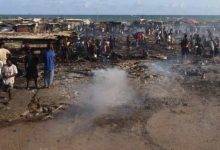The National Director of A Rocha Ghana, Dr Seth Appiah-Kubi, mounted the witness box, at the Accra High Court, yesterday, and testified against exploration of bauxite in the Atiwa Forest in the Eastern Region.
Appearing before Justice John Nyante Nyandu, the witness told the court that the Ghana Integrated Aluminium Development Corporation (GIADEC), destroyed a portion of the forest, by undertaking mining activities there.
A Rocha and a group of environmentalists, climate change activists, civil society and d non-governmental organisations, dragged government to court for prospecting bauxite in the Atewa Range Forest.
The plaintiffs stated that the government was undertaking mining activities without mineral right, and asked the court to compel the government to restore or pay the cost of damages that had been caused as a result of recognisance, prospecting and clearing of roads in the forest.
Dr Appiah-Kubi whose organisation sued the government in 2020, argued that the forest was an ecological zone that needed to be preserved.
The witness told the court that GIADEC had already announced its intention to mine in the forest, adding that GIADEC’s activities in the forest was contrary to the laws govern mining.
He said “They (GIADEC) went ahead to commission a reconnaissance and exploration activity in the forest, which was carried out without due legal processes, destroying a part of the forest and these activities are the pre-events for the actual mining.”
But Dr Appiah-Kubi said he could provide evidence to substantiate his claim.
Senior State Attorney, Leona Johnson-Abassah, disagreed with the assertions of the witness, and said he failed to provide documentary evidence of non-compliance with the law.
The State Attorney asked the court not to grant the request of the witness to produce any document, arguing that if the witness had such document, he would have filed it long ago.
Mr Martin Kpebu, counsel for the plaintiffs, said it was trite law that witnesses were allowed to provide evidence when questions were asked during proceedings.
The court granted the request for the plaintiff to produce documentary evidence.
The plaintiffs were seeking the court to declare that mining of bauxite in the Atewa Range Forest violates the right to life and dignity as enshrined under articles 13 and 15 of the 1992 Constitution.
They further wanted the court to declare that the defendant breached plaintiffs’ right to life and dignity by exploring and driving deep holes into 53 different points in the Atewa Range Forest, which activities started in May 2019.
They urged the court to award damages for breach of articles 13 and 15 of the 1992 Constitution and cost including plaintiffs’ solicitor’s fees against the government.
The Attorney-General in its defence signed by Dorothy Afriyie-Ansah, a Chief State Attorney, denied all the allegations in the plaintiffs’ statement of claim.
The Attorney-General stated that the plaintiffs are merely crying wolf, as many countries, such as Brazil and Australia had successfully conducted mining activities in the forest reserves, like the Amazon Rain Forest and Jarrah Forest under well supervised sustainable mining practices.
The defendant said that the government in ensuring the protection of the environment and species had set up a standing committee, which comprises various mining and environmental regulatory agencies and commissions to ensure optimum adherence to responsible and sustainable mining practices, to protect water bodies and species within the mining area.
BY MALIK SULLEMANA




